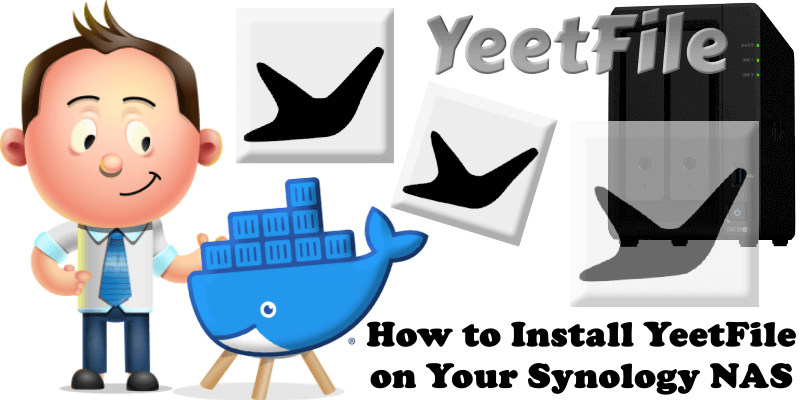
YeetFile is a file vault and file/text transferring service, with both a web and CLI client officially supported. All content is encrypted locally, and the server is incapable of decrypting any transmitted content. In this step by step guide I will show you how to install YeetFile on your Synology NAS using Docker & Portainer.
STEP 1
Please Support My work by Making a Donation.
STEP 2
Install Portainer using my step by step guide. If you already have Portainer installed on your Synology NAS, skip this STEP. Attention: Make sure you have installed the latest Portainer version.
STEP 3
Make sure you have a synology.me Wildcard Certificate. Follow my guide to get a Wildcard Certificate. If you already have a synology.me Wildcard certificate, skip this STEP.
STEP 4
Go to Control Panel / Login Portal / Advanced Tab / click Reverse Proxy. Follow the instructions in the image below.
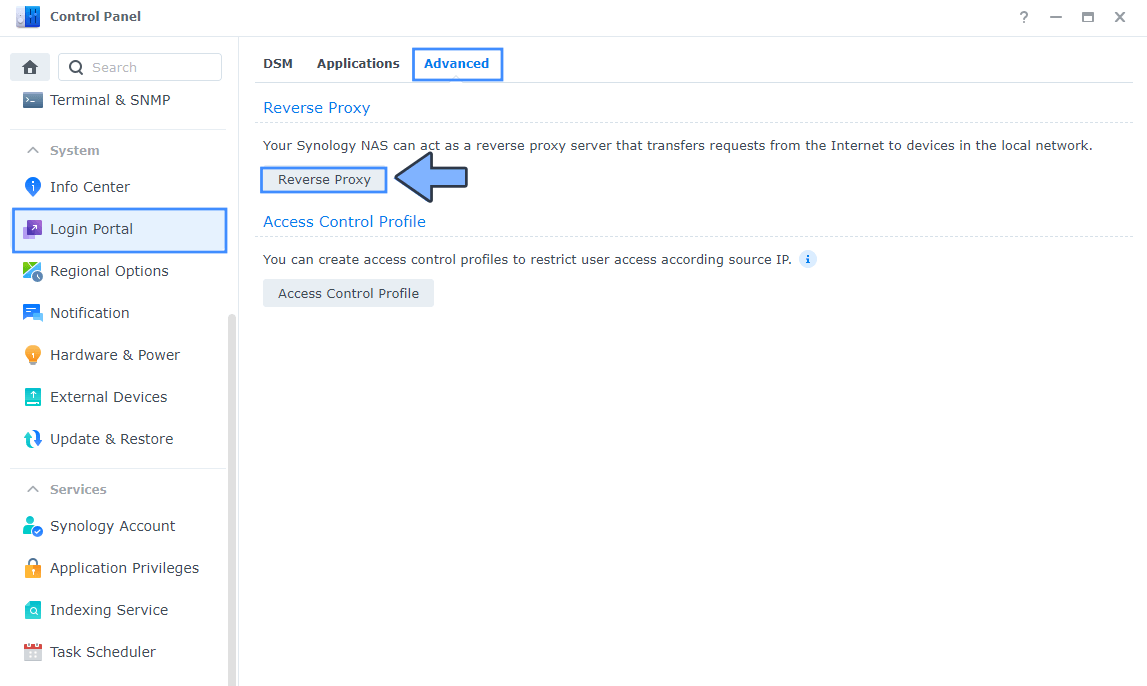
STEP 5
Now click the “Create” button. Follow the instructions in the image below.
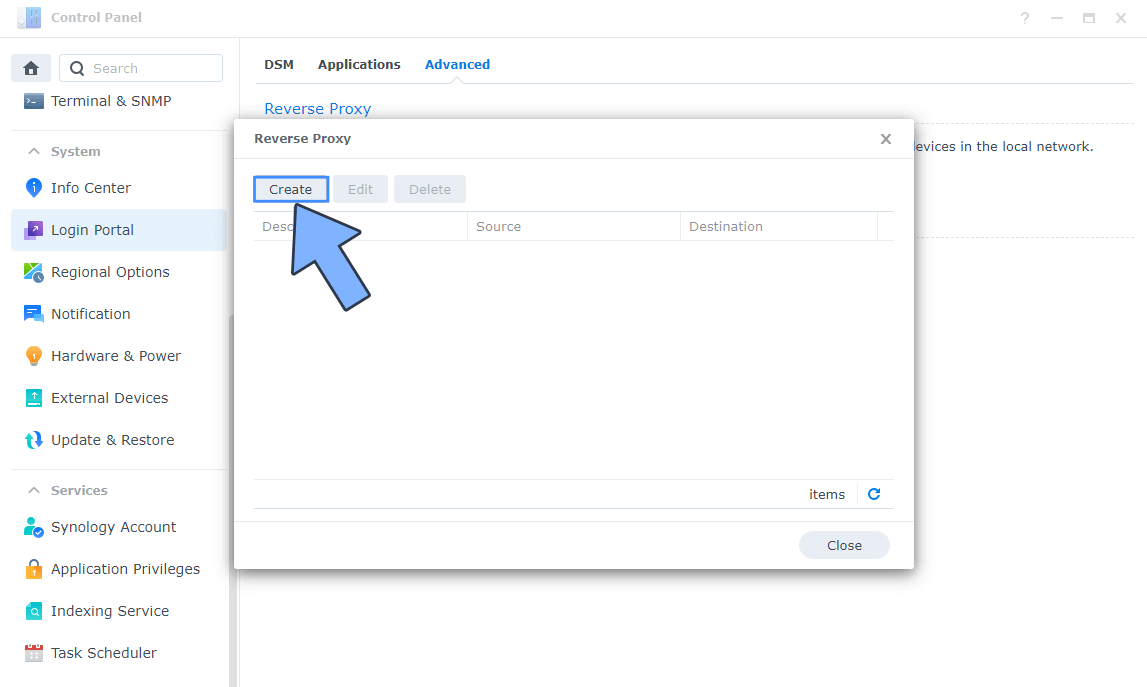
STEP 6
After you click the Create button, the window below will open. Follow the instructions in the image below.
On the General area, set the Reverse Proxy Name description: type in YeetFile. After that, add the following instructions:
Source:
Protocol: HTTPS
Hostname: yeetfile.yourname.synology.me
Port: 443
Check Enable HSTS
Destination:
Protocol: HTTP
Hostname: localhost
Port: 4322
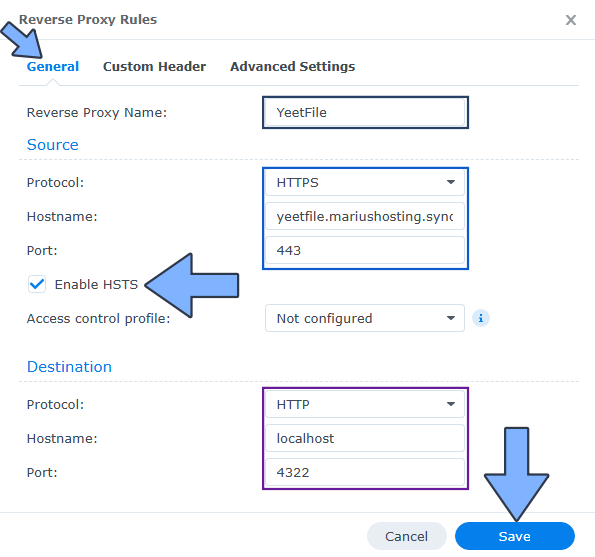
STEP 7
On the Reverse Proxy Rules, click the Custom Header tab. Click Create and then, from the drop-down menu, click WebSocket. After you click on WebSocket, two Header Names and two Values will be automatically added. Click Save. Follow the instructions in the image below.

STEP 8
Go to Control Panel / Network / Connectivity / Check Enable HTTP/2 then click Apply. Follow the instructions in the image below.
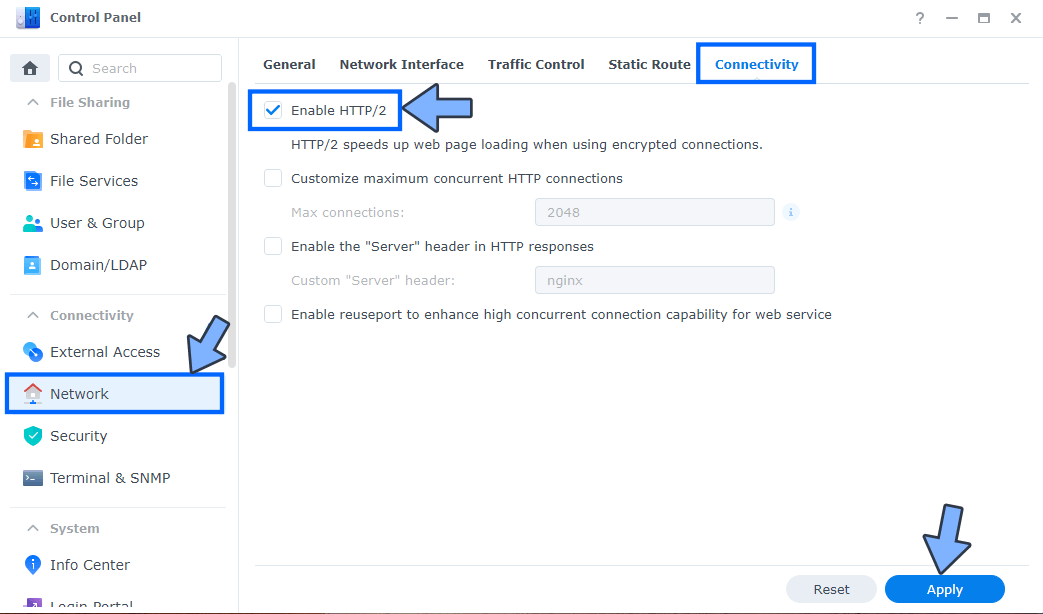
STEP 9
Go to Control Panel / Security / Advanced tab/ Check Enable HTTP Compression then click Apply. Follow the instructions in the image below.
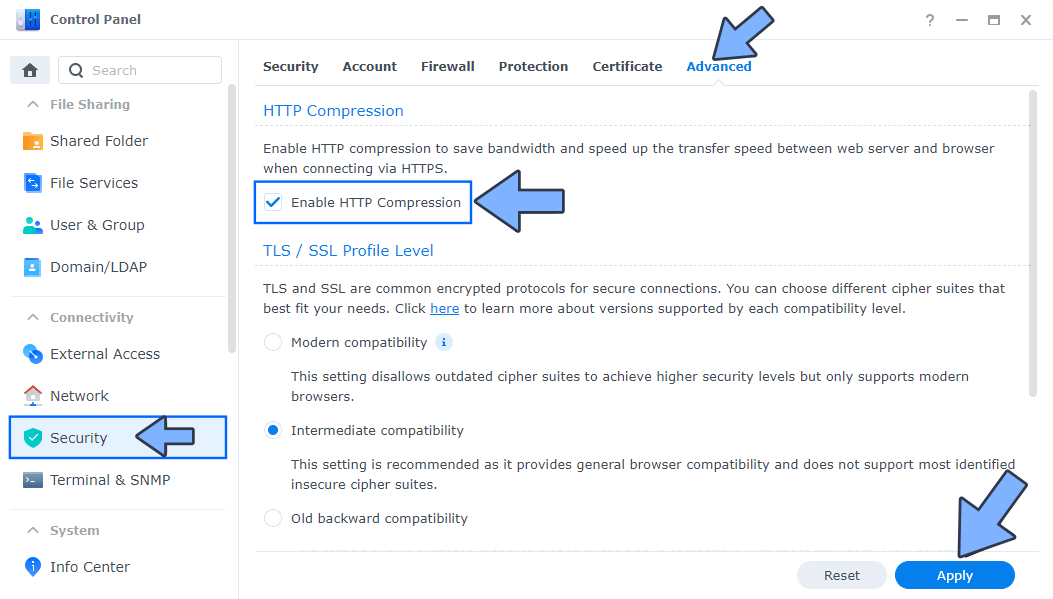
STEP 10
Go to File Station and open the docker folder. Inside the docker folder, create one new folder and name it yeetfile. Follow the instructions in the image below.
Note: Be careful to enter only lowercase, not uppercase letters.
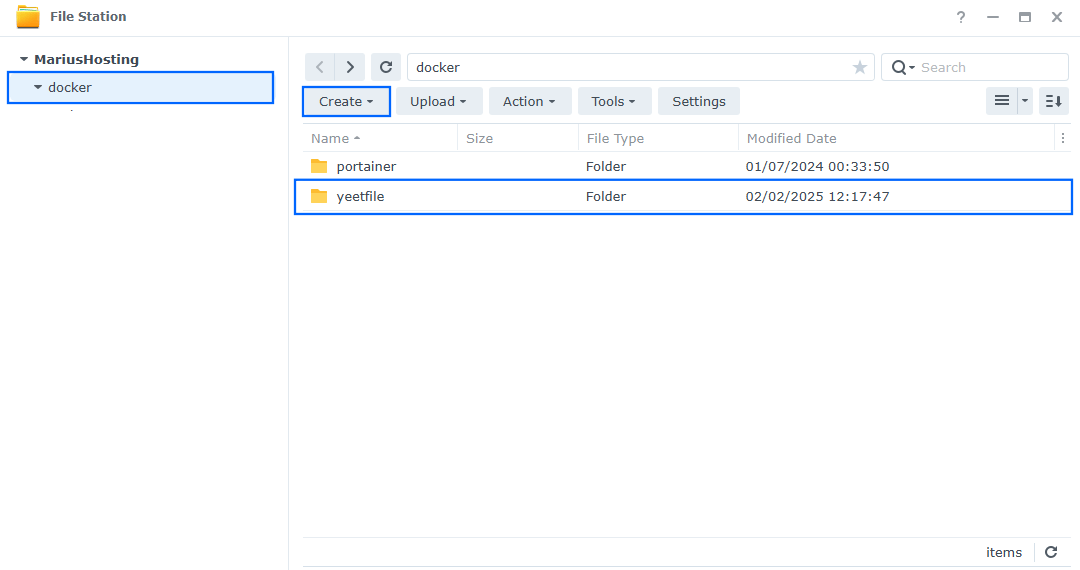
STEP 11
Now create two new folders inside the yeetfile folder that you have previously created at STEP 10 and name them db, uploads. Follow the instructions in the image below.
Note: Be careful to enter only lowercase, not uppercase letters.
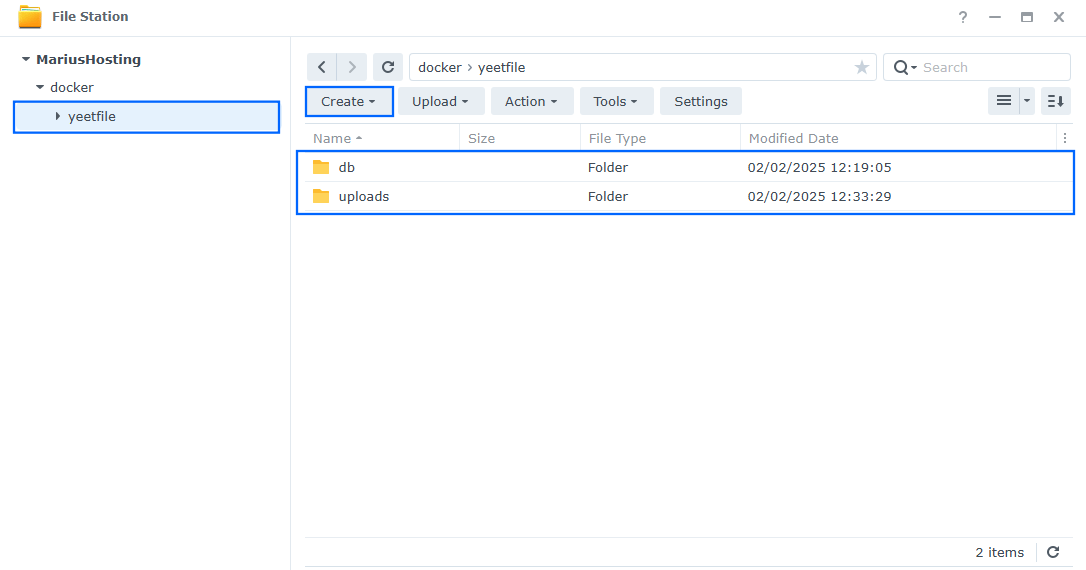
STEP 12
Log into Portainer using your username and password. On the left sidebar in Portainer, click on Home then Live connect. Follow the instructions in the image below.

On the left sidebar in Portainer, click on Stacks then + Add stack. Follow the instructions in the image below.

STEP 13
In the Name field type in yeetfile. Follow the instructions in the image below.
services:
db:
image: postgres:17
container_name: YeetFile-DB
hostname: yeetfile-db
security_opt:
- no-new-privileges:true
healthcheck:
test: ["CMD", "pg_isready", "-q", "-d", "yeetfile", "-U", "yeetfileuser"]
timeout: 45s
interval: 10s
retries: 10
volumes:
- /volume1/docker/yeetfile/db:/var/lib/postgresql/data:rw
environment:
POSTGRES_DB: yeetfile
POSTGRES_USER: yeetfileuser
POSTGRES_PASSWORD: yeetfilepass
restart: on-failure:5
yeetfile:
image: ghcr.io/benbusby/yeetfile:latest
container_name: YeetFile
healthcheck:
test: ["CMD-SHELL", "nc -z 127.0.0.1 8090 || exit 1"]
interval: 10s
timeout: 5s
retries: 3
start_period: 90s
ports:
- 4322:8090
environment:
YEETFILE_DEBUG: 0
YEETFILE_STORAGE: local
YEETFILE_DEFAULT_USER_STORAGE: -1
YEETFILE_DEFAULT_USER_SEND_: -1
YEETFILE_LOCKDOWN: 1 #Prevents unauthenticated / not logged in users from using any part of the YeetFile instance.
YEETFILE_HOST: 0.0.0.0
YEETFILE_PORT: 8090
YEETFILE_DB_USER: yeetfileuser
YEETFILE_DB_PASS: yeetfilepass
YEETFILE_DB_NAME: yeetfile
YEETFILE_DB_HOST: yeetfile-db
YEETFILE_DOMAIN: https://yeetfile.yourname.synology.me
YEETFILE_SERVER_SECRET: lSbSgwfMRtDgFmARb+S+bsE3kIhBhGjcMMS+eIdn3pA=
volumes:
- /volume1/docker/yeetfile/uploads:/app/uploads:rw
depends_on:
db:
condition: service_healthy
restart: on-failure:5
Note: Before you paste the code above in the Web editor area below, change the value for YEETFILE_DOMAIN and type in your own synology.me DDNS with https:// at the beginning that you have previously created at STEP 6.
Note: Before you paste the code above in the Web editor area below, change the value for YEETFILE_SERVER_SECRET. (Generate your free Random 32 byte base 64 YEETFILE_SERVER_SECRET.) ⚠️Warning: Check the example in the following screenshot: EXAMPLE. When you go to the link to generate your YEETFILE_SERVER_SECRET, make sure you change the default 16 byte code to 32, as per the example in the EXAMPLE screenshot.
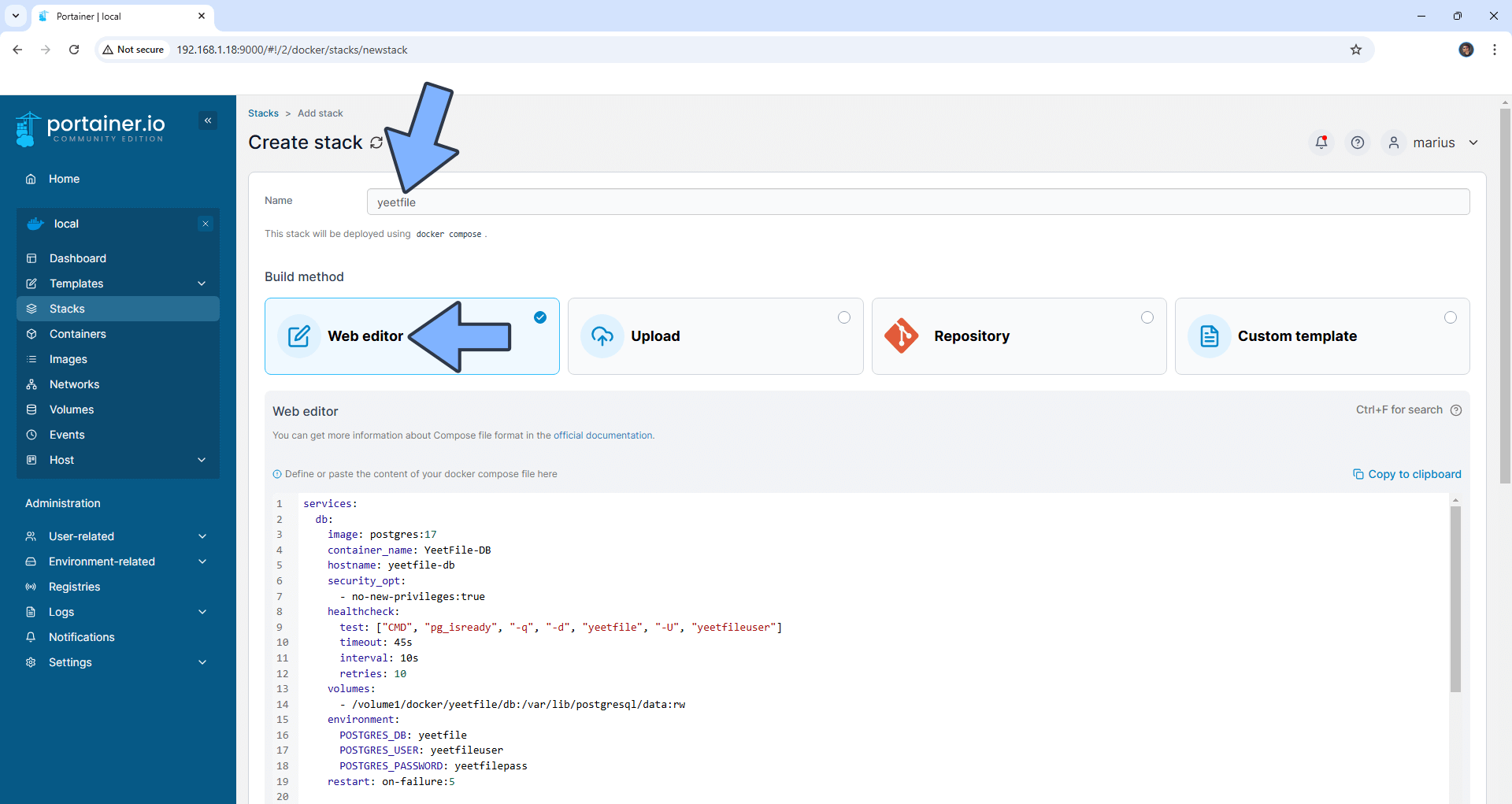
STEP 13
Scroll down on the page until you see a button named Deploy the stack. Click on it. Follow the instructions in the image below. The installation process can take up to a few minutes. It will depend on your Internet speed connection.
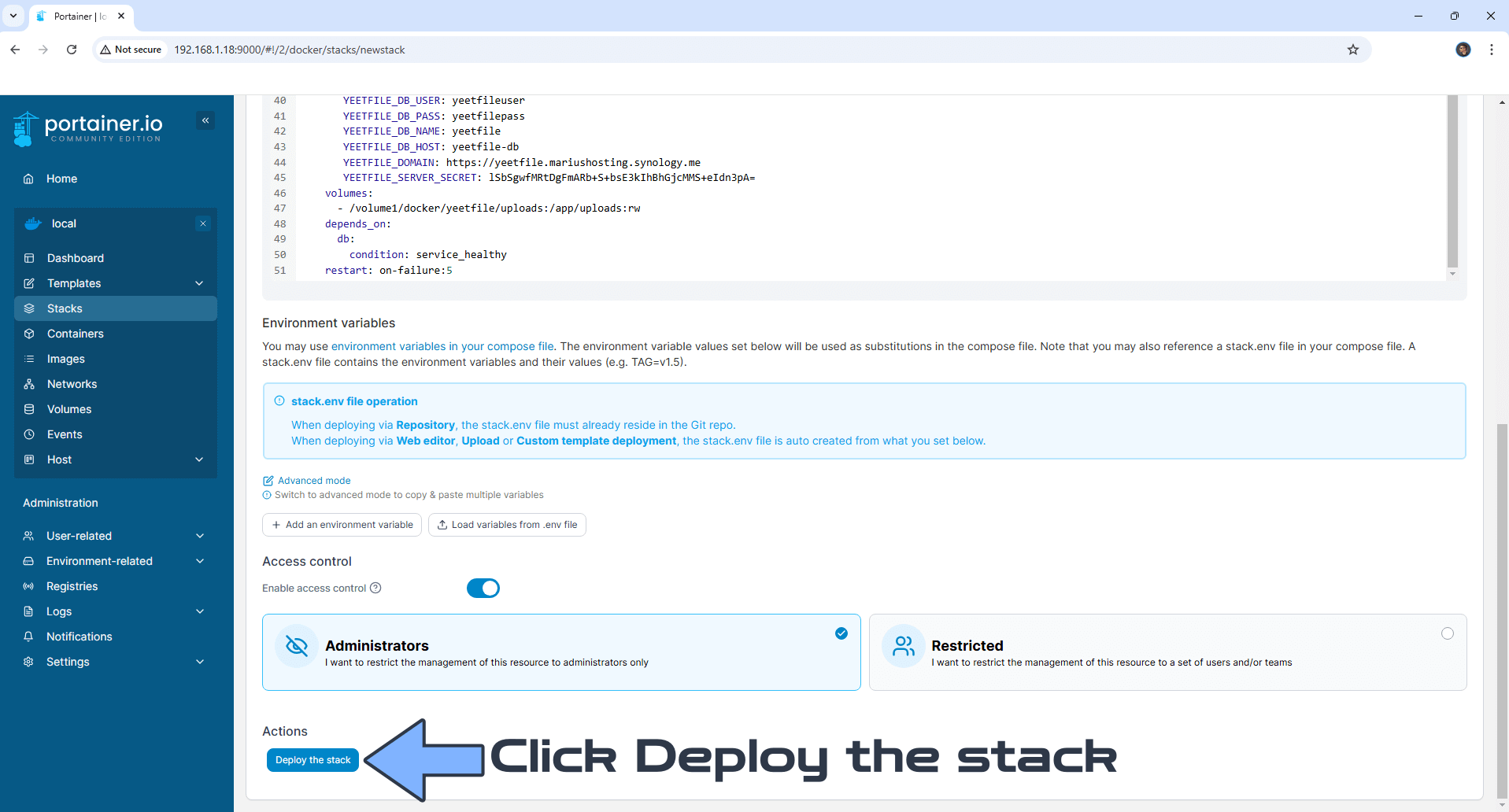
STEP 14
If everything goes right, you will see the following message at the top right of your screen: “Success Stack successfully deployed“.

STEP 15
🟢Please Support My work by Making a Donation. Almost 99,9% of the people that install something using my guides forget to support my work, or just ignore STEP 1. I’ve been very honest about this aspect of my work since the beginning: I don’t run any ADS, I don’t require subscriptions, paid or otherwise, I don’t collect IPs, emails, and I don’t have any referral links from Amazon or other merchants. I also don’t have any POP-UPs or COOKIES. I have repeatedly been told over the years how much I have contributed to the community. It’s something I love doing and have been honest about my passion since the beginning. But I also Need The Community to Support me Back to be able to continue doing this work.
STEP 16
Now open your browser and type in your HTTPS address like this https://yeetfile.yourname.synology.me In my case it’s https://yeetfile.mariushosting.synology.me If everything goes right, you will see the YeetFile first page. At the top right of the page, click Sign Up. Follow the instructions in the image below.
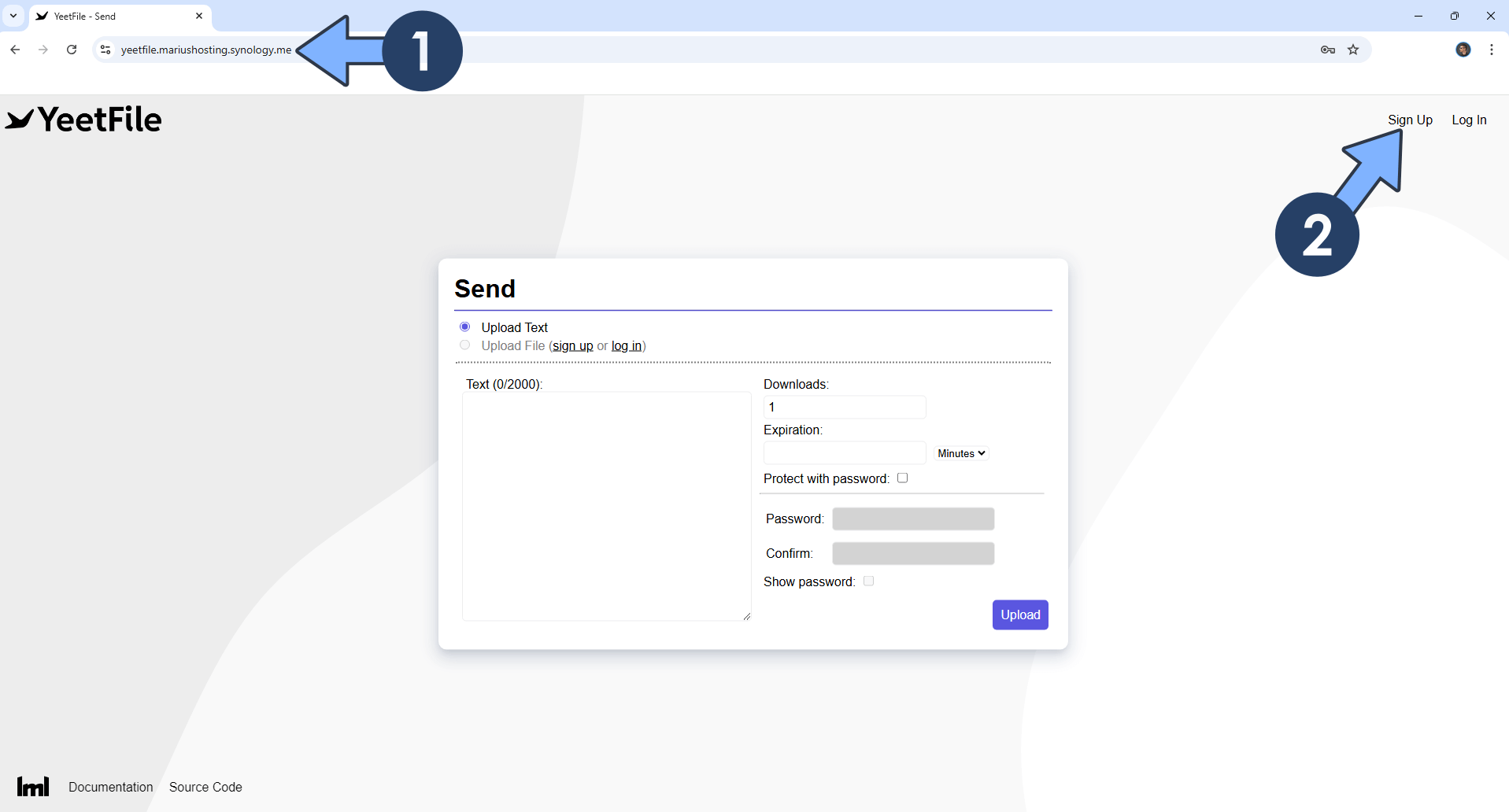
STEP 17
Type in your own password, then click Create Account ID. Follow the instructions in the image below.
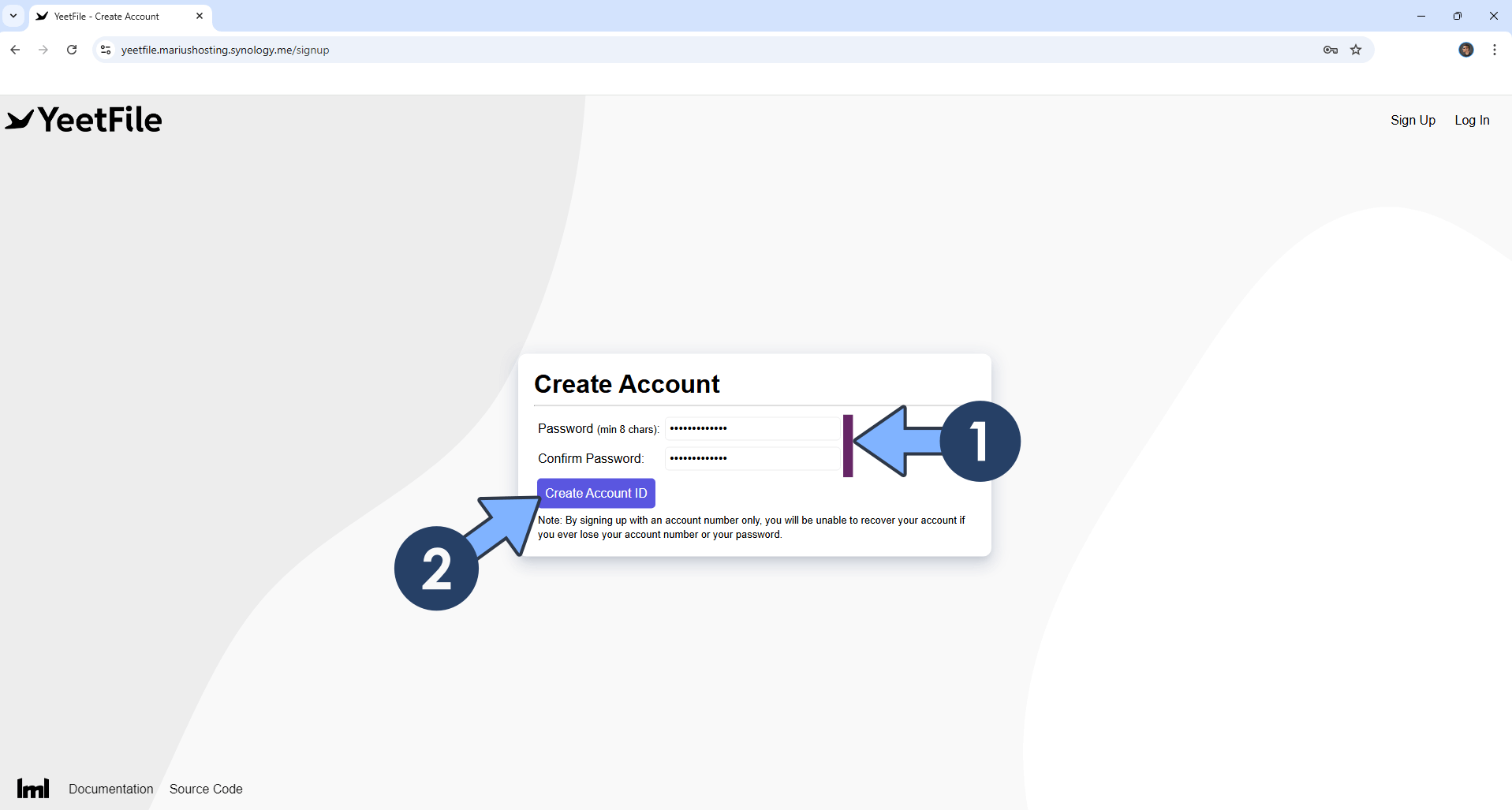
STEP 18
In the apposite field, type in your auto-generated 6-digit code, then click Verify. Follow the instructions in the image below.
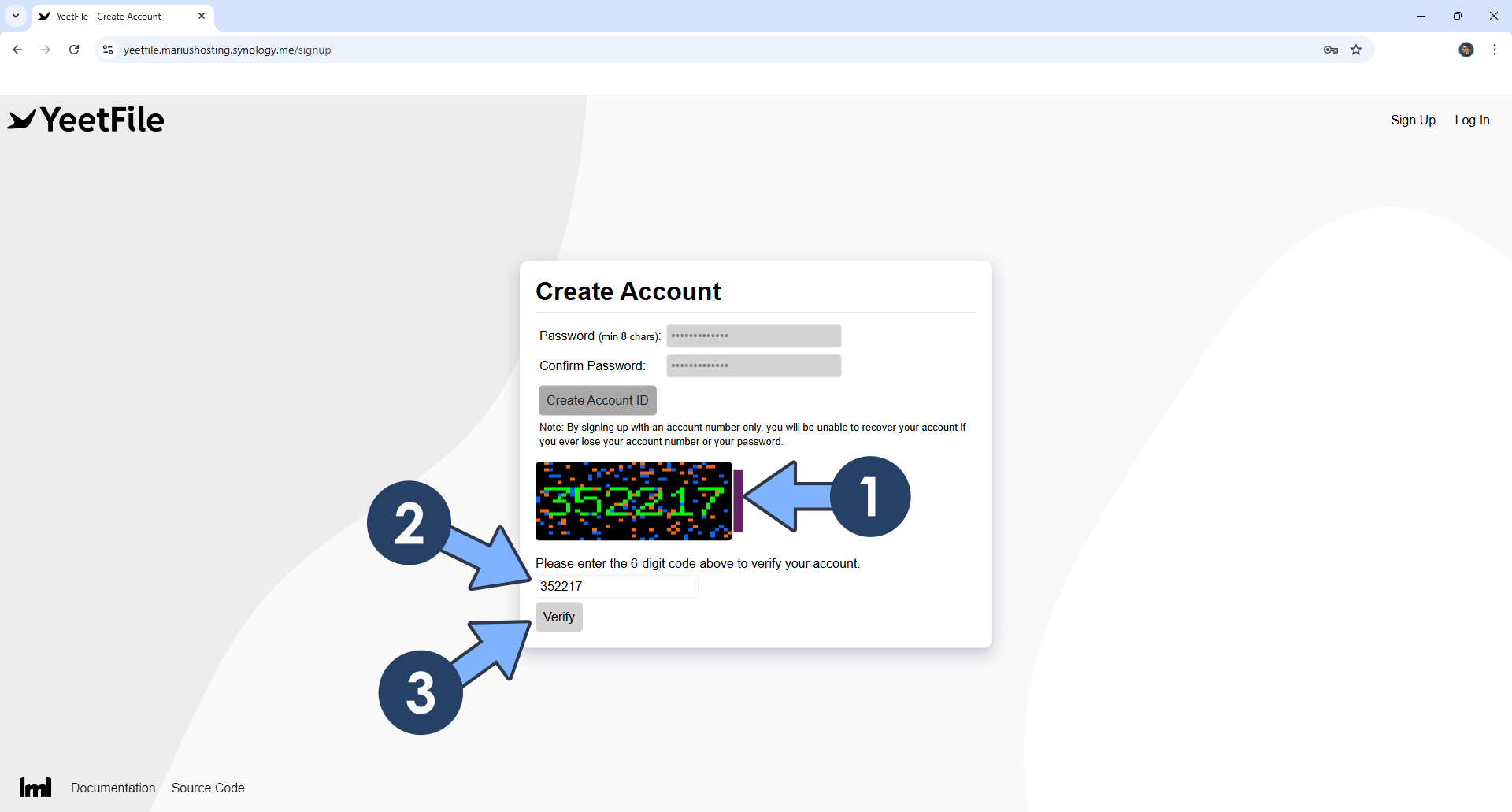
STEP 19
Copy your account ID in a safe place. You will need it later if you want to log into the YeetFile application. Click Start Yeeting. Follow the instructions in the image below.
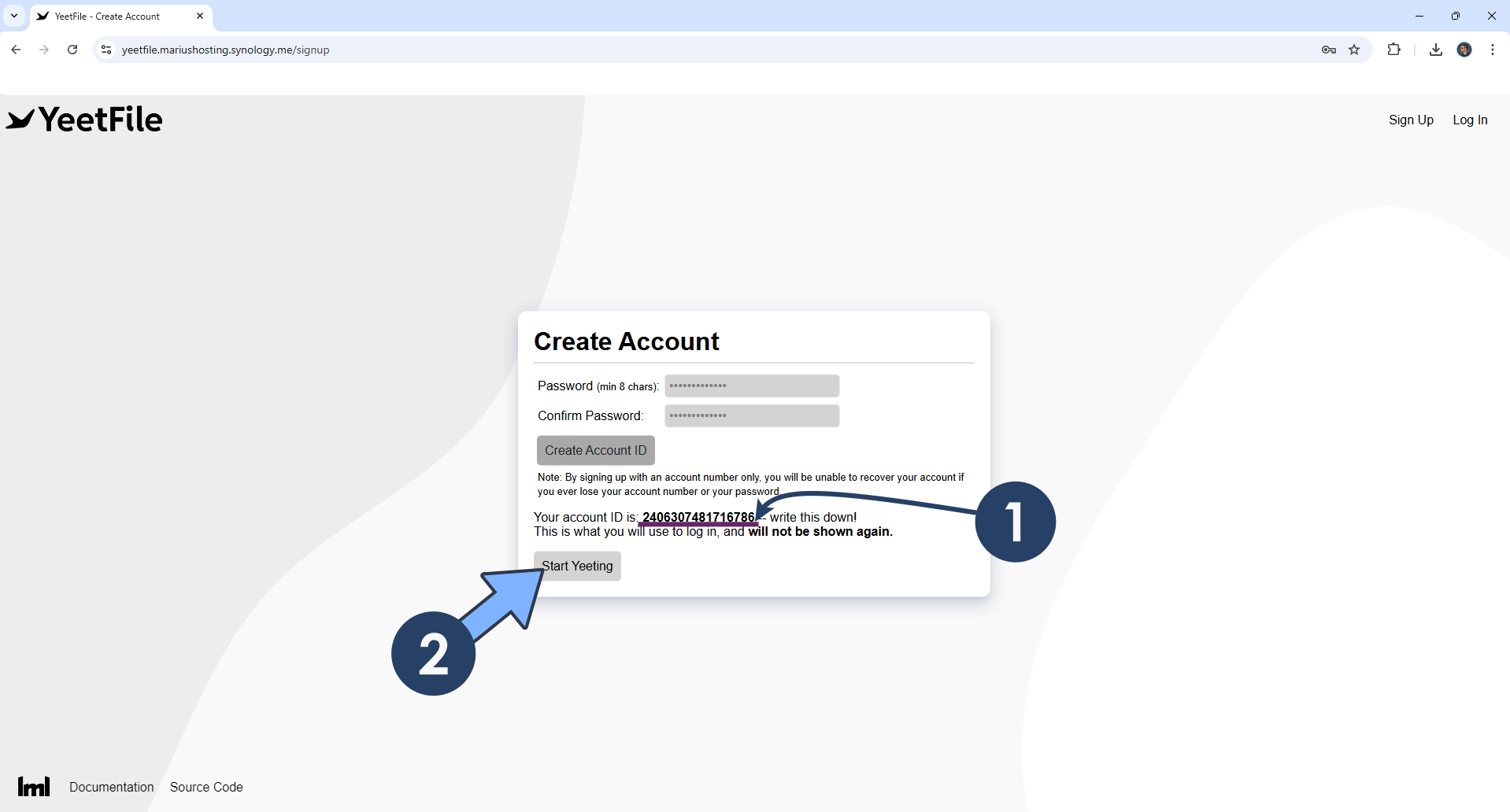
STEP 20
Choose your files or add text. Set the expiration parameters for downloads and time, add a password. Click Upload. Follow the instructions in the image below.
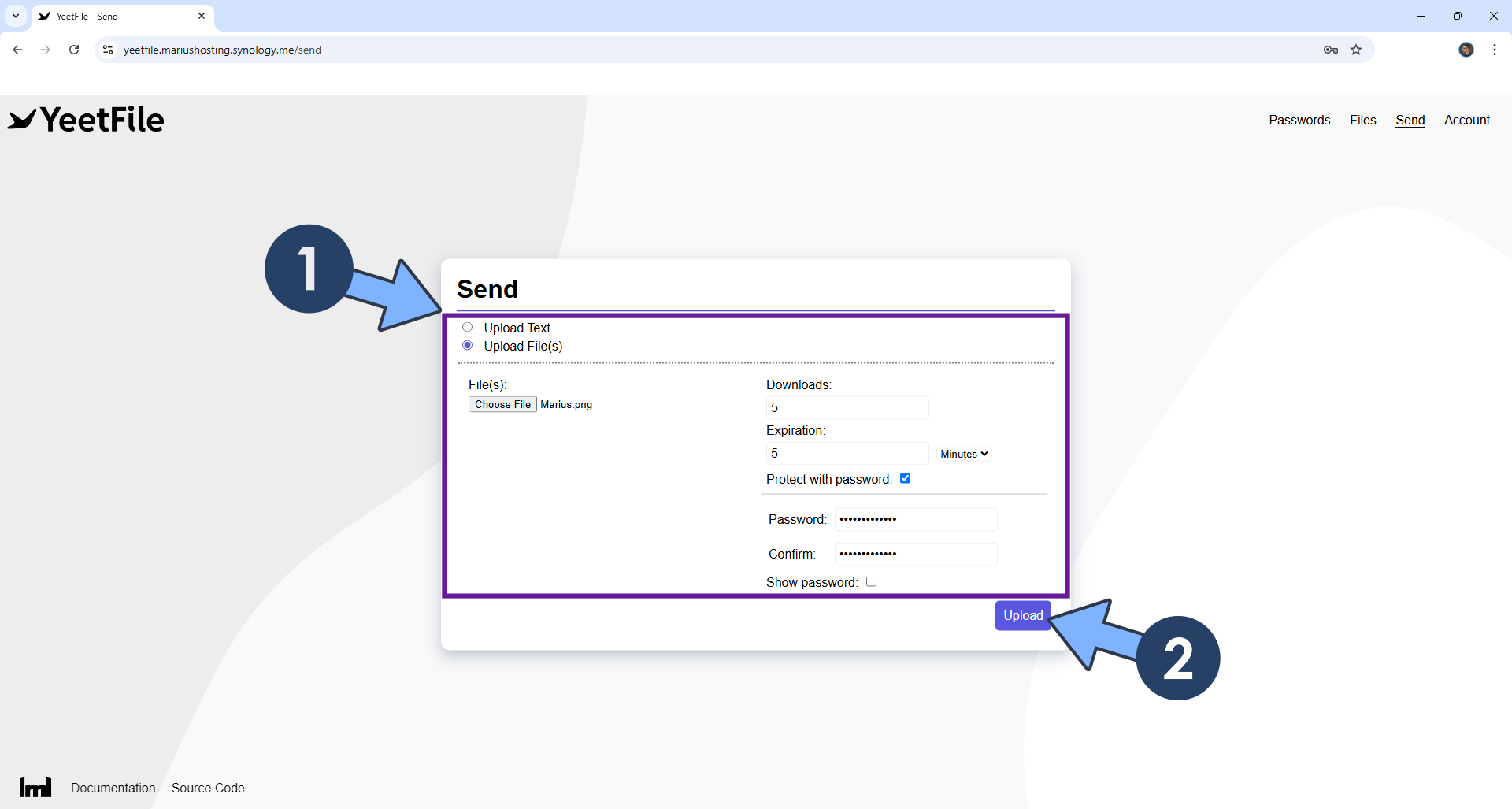
STEP 21
Copy the auto-generated link. Follow the instructions in the image below.
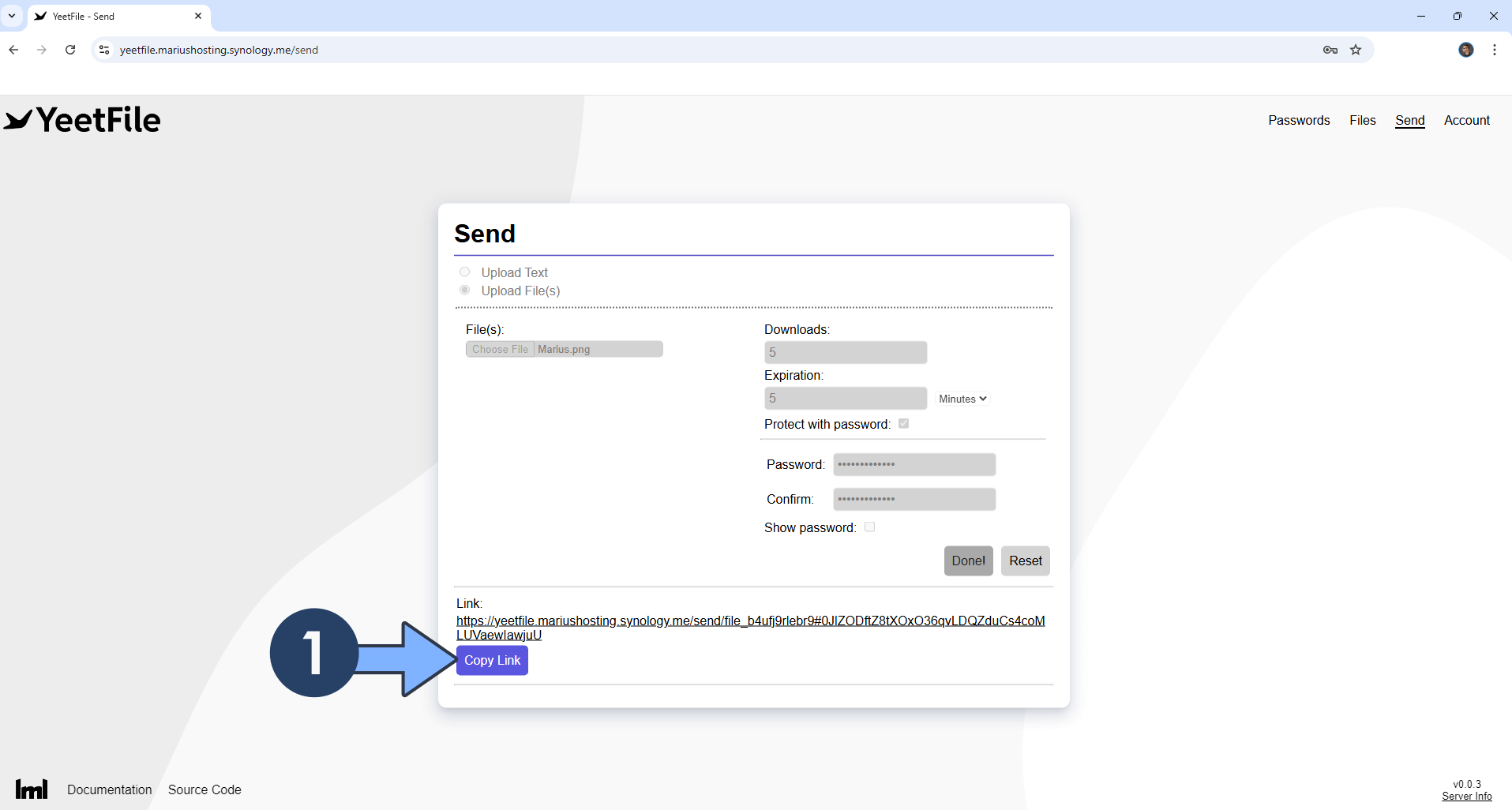
STEP 22
Open the link that you have previously copied at STEP 21 in a new browser page. Type in the password that you have previously created at STEP 20, then click Submit. Follow the instructions in the image below.
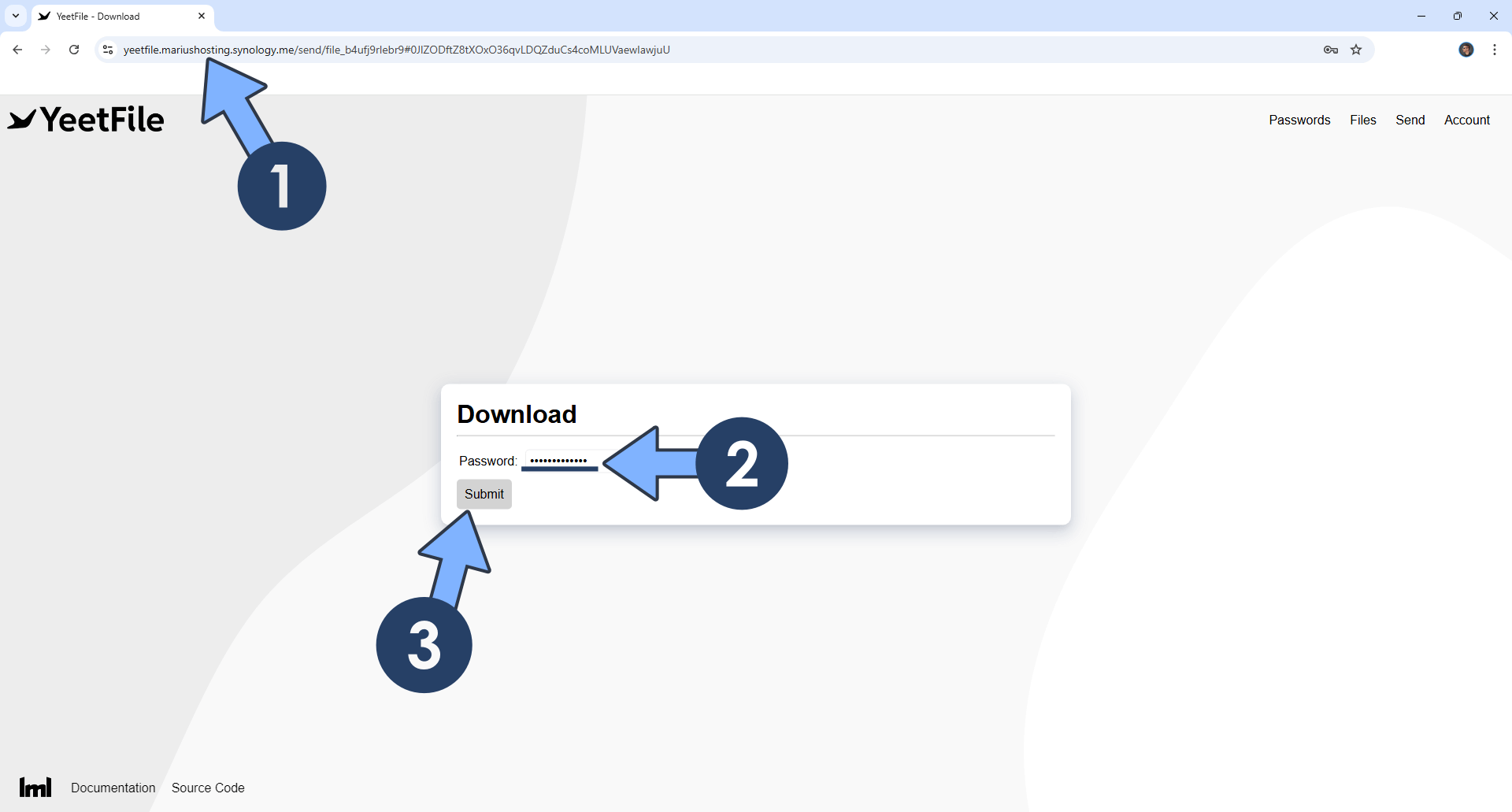
STEP 23
Click Download to download your file. Follow the instructions in the image below.
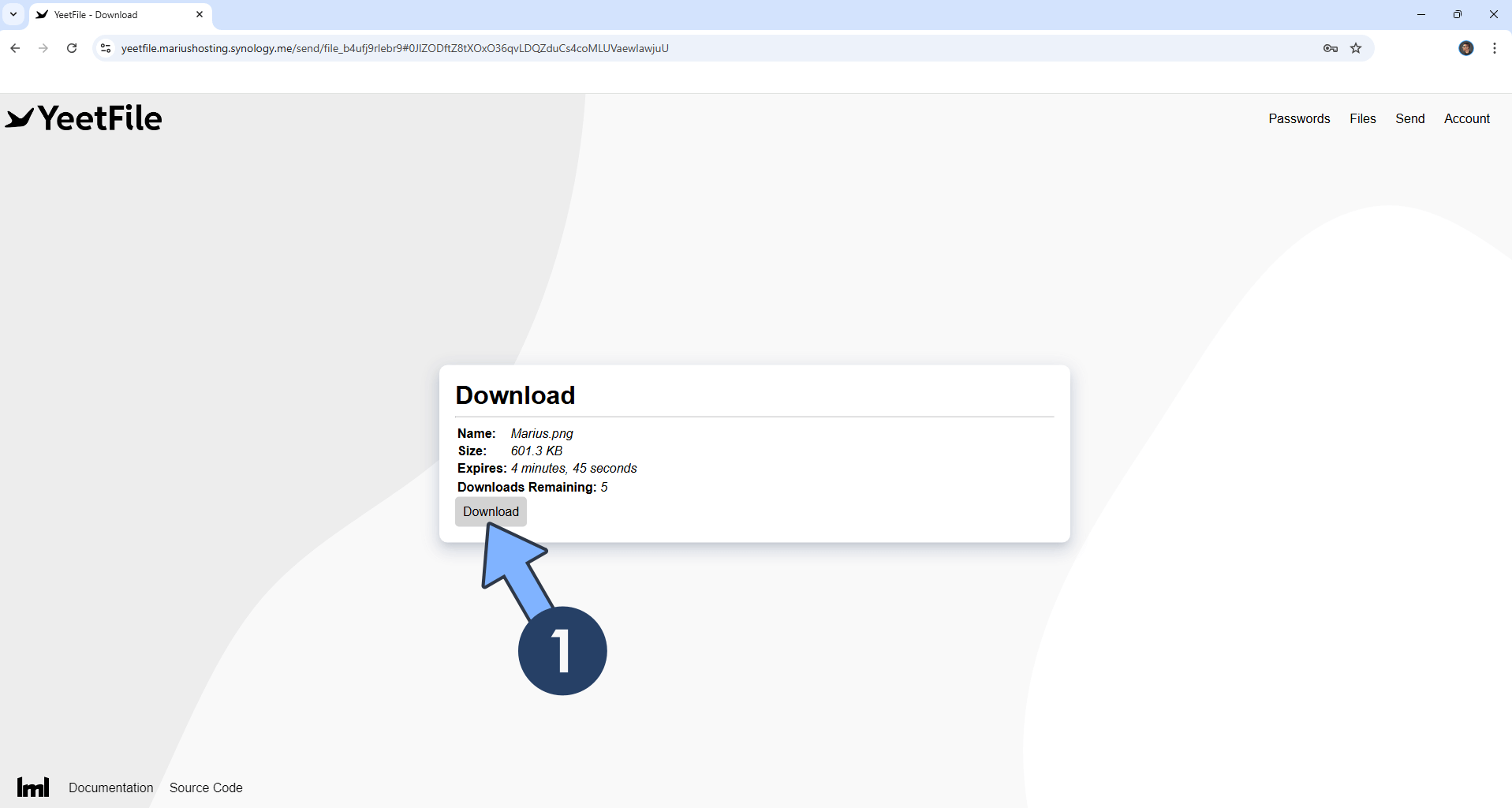
STEP 24
After logout, if you want to log into your YeetFile application again, remember to type in your own ID that you have previously gotten at STEP 19, and your own password that you have previously added at STEP 17. Follow the instructions in the image below.
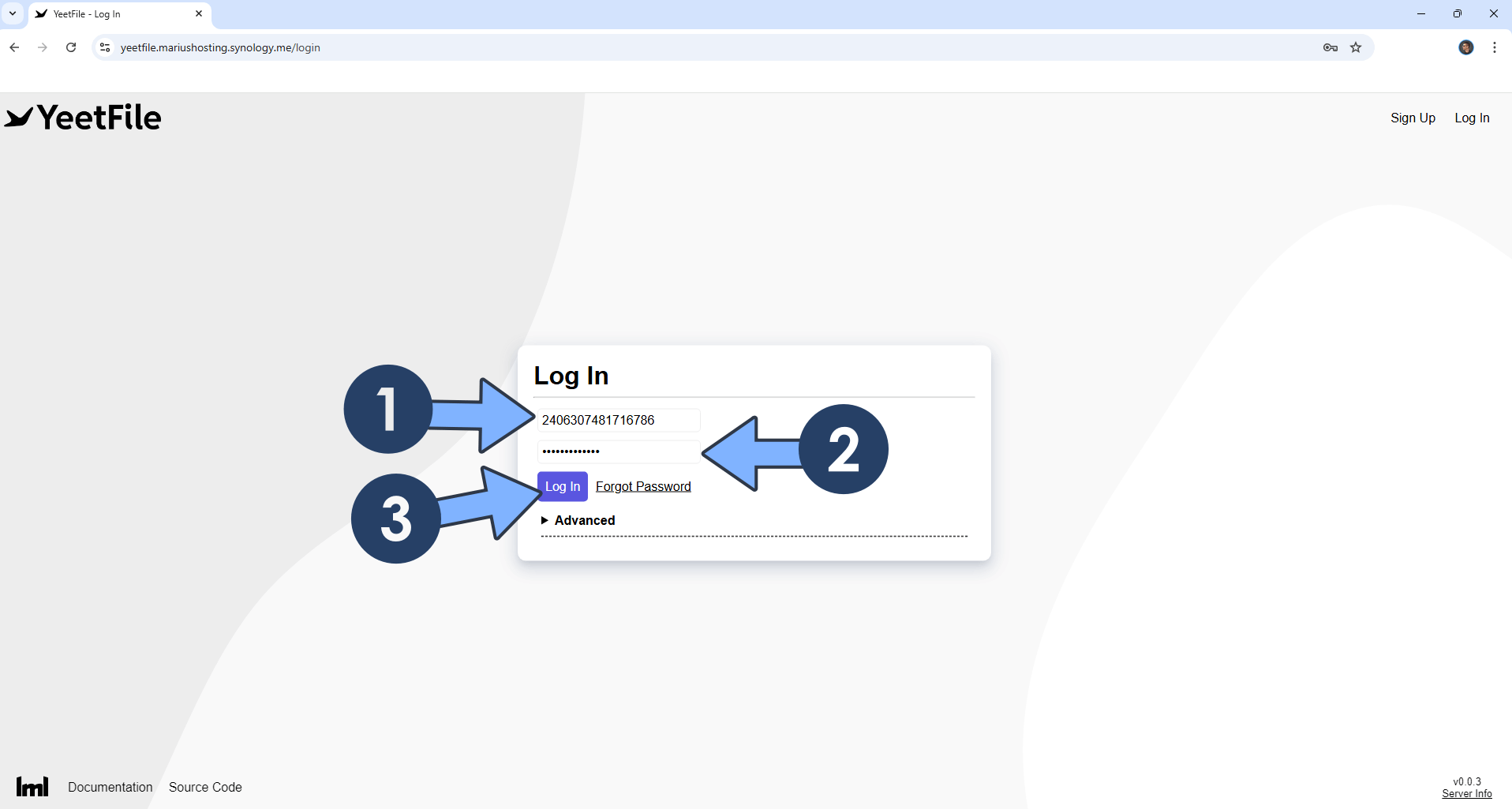
Enjoy YeetFile!
If you encounter issues by using this container, make sure to check out the Common Docker issues article.
Note: Can I run Docker on my Synology NAS? See the supported models.
Note: How to Back Up Docker Containers on your Synology NAS.
Note: Find out how to update the YeetFile container with the latest image.
Note: How to Free Disk Space on Your NAS if You Run Docker.
Note: How to Schedule Start & Stop For Docker Containers.
Note: How to Activate Email Notifications.
Note: How to Add Access Control Profile on Your NAS.
Note: How to Change Docker Containers Restart Policy.
Note: How to Use Docker Containers With VPN.
Note: Convert Docker Run Into Docker Compose.
Note: How to Clean Docker.
Note: How to Clean Docker Automatically.
Note: Best Practices When Using Docker and DDNS.
Note: Some Docker Containers Need WebSocket.
Note: Find out the Best NAS Models For Docker.
This post was updated on Saturday / December 27th, 2025 at 9:25 PM
